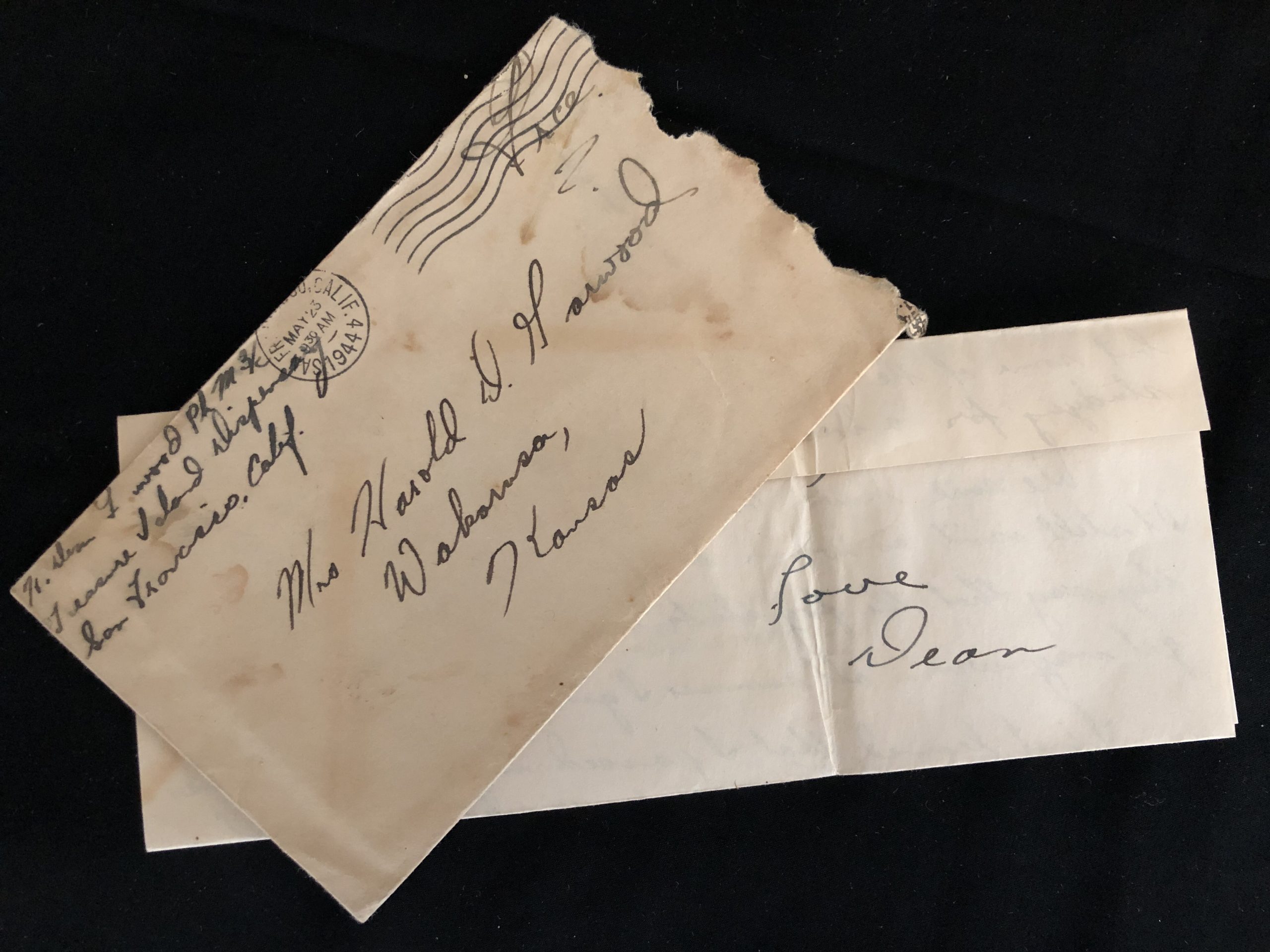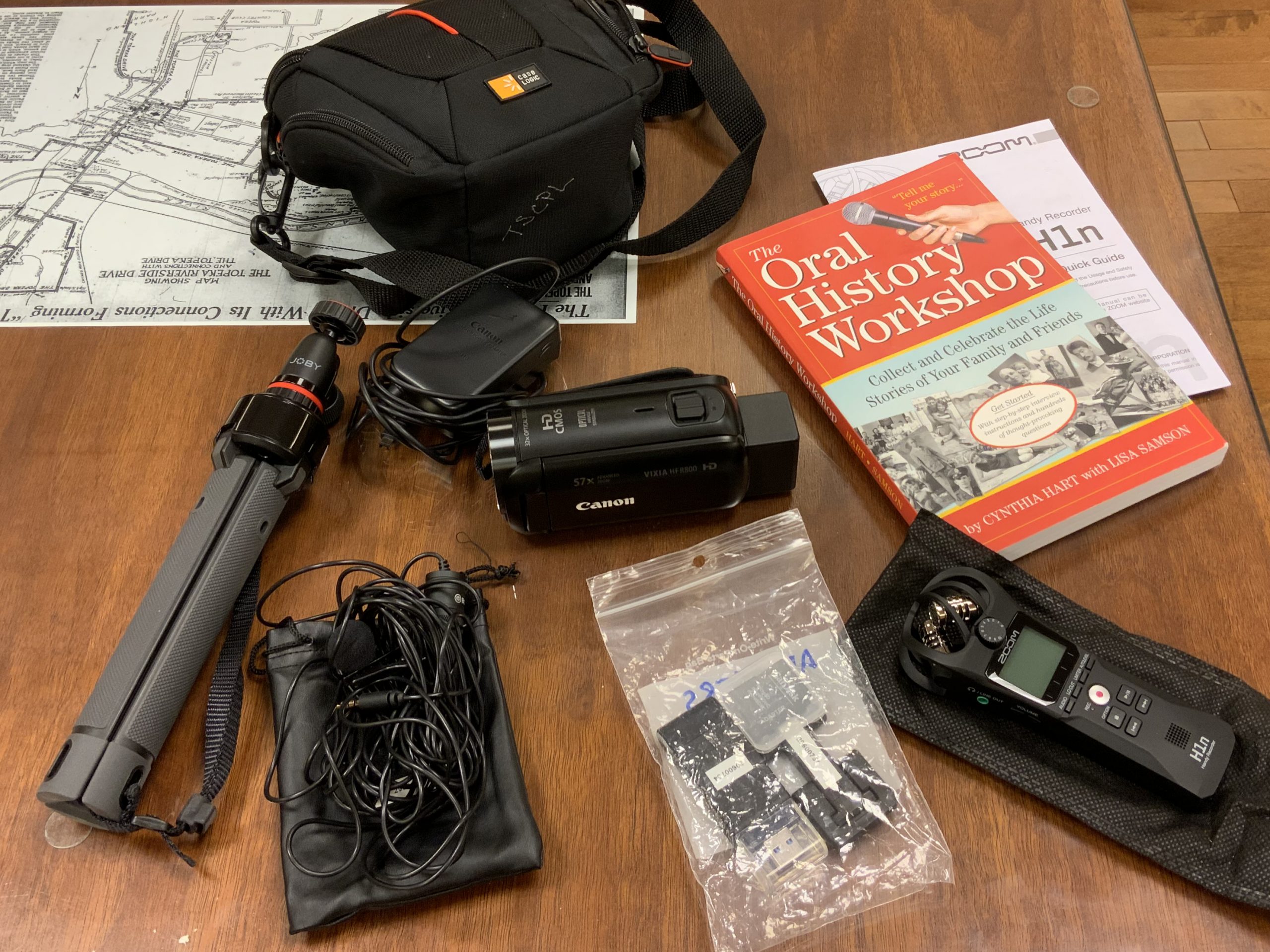Learn How to Uncover Important Family Stories & Secrets
hide
Relatives are great resources when you're starting family research or breaking though a genealogy brick wall. You can find new insights into your genealogy and uncover some interesting stories and maybe a few secrets. Interviewing relatives can give you easy access to information that could take hours to track down through written records. Family narratives are just as important as genealogical facts. They create a story of your relatives' lives and can connect to local or national historical events.
Getting Started
 There are a few things you should consider before interviewing a relative. Start with your older relatives because they have the stories and information that reach back the farthest in time, but plan on interviewing all your relatives or as many as you can. If you don't know a relative bring someone along who does to ease their nervousness. Have a plan before you start scheduling interviews. Gather a list of questions you want to ask. Consider what you might want to learn from each interview. Are you interested in learning something specific or just gathering oral history? Discuss your objectives with the interviewee so they know what to expect and will reflect on the past before your interview. Think about how you are going to document the interview, I'll talk about this more later in this article. Arrange a time that is most convenient for your relative. Plan for plenty of time because it will inevitably take longer than you thought and you don't want to rush your relatives.
There are a few things you should consider before interviewing a relative. Start with your older relatives because they have the stories and information that reach back the farthest in time, but plan on interviewing all your relatives or as many as you can. If you don't know a relative bring someone along who does to ease their nervousness. Have a plan before you start scheduling interviews. Gather a list of questions you want to ask. Consider what you might want to learn from each interview. Are you interested in learning something specific or just gathering oral history? Discuss your objectives with the interviewee so they know what to expect and will reflect on the past before your interview. Think about how you are going to document the interview, I'll talk about this more later in this article. Arrange a time that is most convenient for your relative. Plan for plenty of time because it will inevitably take longer than you thought and you don't want to rush your relatives.
What You Should Ask
What questions you ask will be determined by how well you know the relative and their side of the family. Ask concise open-ended questions that leave room for the person to tell the story as they remember. Make it a conversation not an interrogation. Ask the detail questions of names and dates in the conversation naturally. Don't strictly follow your list of questions. If an opportunity opens up to ask about military service of a relative or some other detail you didn't know about, take it. 
My Grandfathers letter to his mother during his Navy Service in World War II.
Start by asking the basic questions of name, birthplace and where they grew up. Ask about family customs, traditions and cultural influences. If the interviewee is having a hard time recalling, suggest looking through an old photo album or ask about any possible family artifacts they might have. Artifacts could be vital records, scrapbooks, immigration documents, family bibles and any other heirlooms they might have. Looking at any family artifacts they have is a good idea in general because you can take a picture of the item to reference later.
Here are some helpful question lists:
- AncestrySupport: Questions for Interviewing Family Members
- Thought Co. 50 Questions to Ask Relatives About Family History
- Smithsonian Oral History Interview Guide
Plan to Record the Interview
You can record the interview by taking notes, audio recording, video recording or you can do all three. I suggest at least audio recording. Your notes won't be as effective as a recording and you can pay better attention if you are not taking notes. If you have a smart phone, most have a built in audio recording app or you can download an app. Using a video recorder is an excellent option if you have one. I would stay away from using your smart phone to video record the interview because that could fill up all the storage on your phone pretty quickly.

Another option is the library's Oral History Kit. To learn how to use the equipment and check the kit out take a training from our Genealogy Team. Sign up on the library genealogy webpage – click on the blue "Schedule Appointment" button. Then write "oral history kit training" in the "What you need help with section." After the training you will be able to check out the kit.
Bring a camera to photograph your relative, with their permission. Warn them in advance so they'll be camera ready. You should also photograph any important family artifacts they might have. Get an interview release form filled out and signed so you can share their story. They can also write any restrictions they might have for the use of the information they provide.
Leave Something Behind
Leave something with your relative. It can be any number of items – a copy of the family tree or a family photo. Definitely leave your contact information with them in case they remember a detail later.
After the Interview
 Once you are home label all notes, audio and video recordings with your relative's name and contact information. Create a word for word typed transcript of the interview. Also type out any notes you took during the interview. Identify areas you would like them to elaborate on if you get another chance to interview that relative. Make note of any questions related to this interview you might want to ask another relative – maybe they mentioned this other relative in a story. It's nice to get multiple points of view on important family events. Organize all digital files in one place on your computer so they are easy to find.
Once you are home label all notes, audio and video recordings with your relative's name and contact information. Create a word for word typed transcript of the interview. Also type out any notes you took during the interview. Identify areas you would like them to elaborate on if you get another chance to interview that relative. Make note of any questions related to this interview you might want to ask another relative – maybe they mentioned this other relative in a story. It's nice to get multiple points of view on important family events. Organize all digital files in one place on your computer so they are easy to find.
The information and stories you gathered from the interview will be great but always treat this as any genealogical source. Was a story a first-hand account? Was there a reason for them to exaggerate or obfuscate the story? Always account for the imperfectness of memory. That doesn't mean these stories and information aren't true. It means when you find another source who confirms the information, it will mean that much more.














